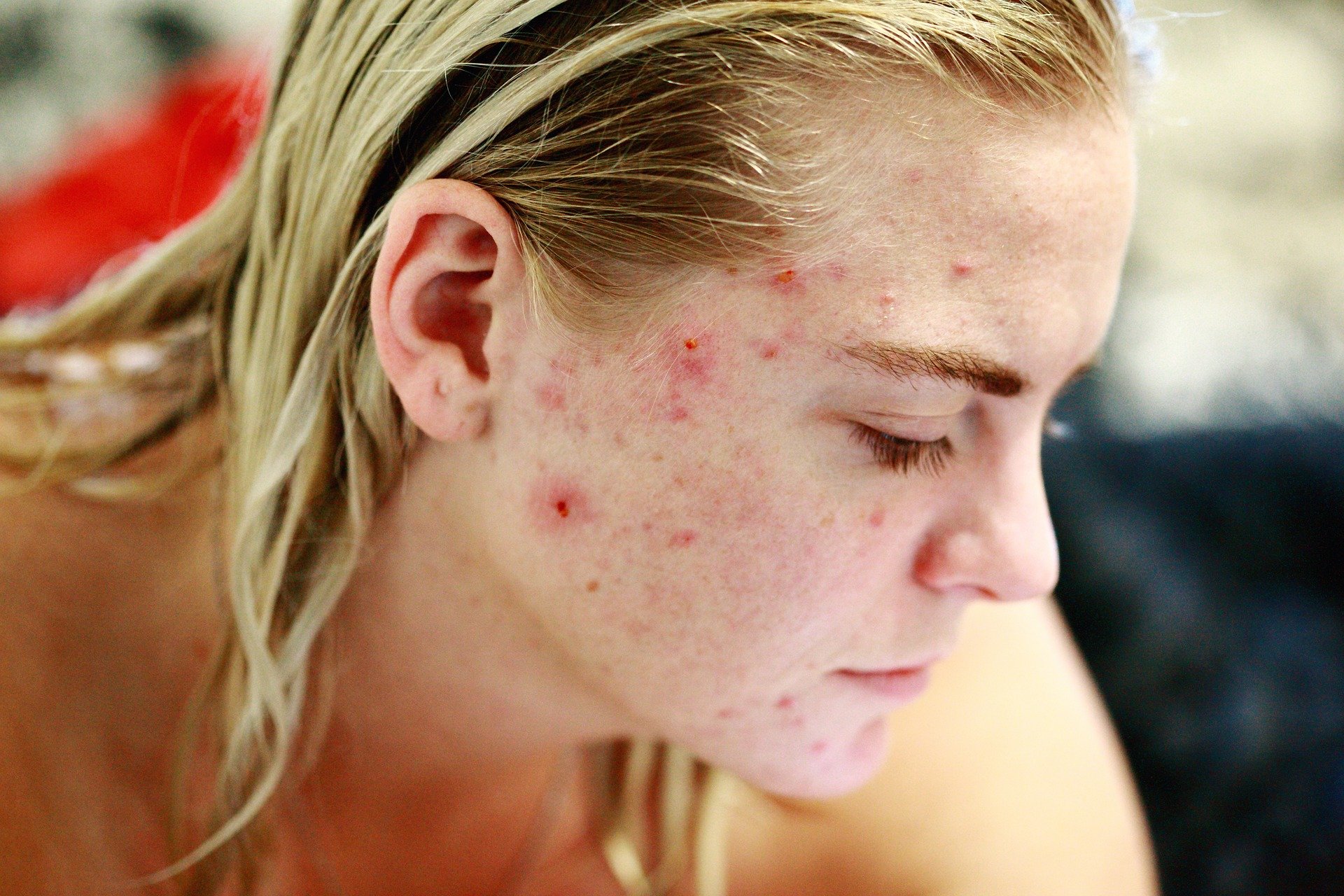Skin & Esthetics
The Most Common Skin Conditions
By M.M. (staff writer) , published on February 16, 2022

Medicine Telehealth Health Skin Conditions Skin
The Most Common Skin Conditions
The skin is a vital organ because it covers our entire body. It is the largest organ and serves many essential functions such as protecting our inner body, regulating the body temperature, and storing water, fat, vitamin D. The skin is composed of three layers; the epidermis, dermis, and subcutaneous layer.
This review will outline the most common skin conditions
Acne (Acne vulgaris)
Acne is the most common skin disorder and can be a source of anxiety for teens; plus, the incidence of acne has started growing in adults. It is caused by blocked hair follicles and skin oil glands, often triggered by hormonal changes. Acne means not only pimples on the face but also blackheads, cysts, and nodules. Some people can get acne in different body parts, like the chest and back.
Acne treatment by a dermatologist is essential because it may lead to permanent scars and dark facial spots if left unchecked.
Atopic dermatitis (Eczema)
Atopic dermatitis is one of the most common forms of eczema seen in children. Its exact cause is unknown, but studies have shown that it may involve genetics, the environment, and the immune system.
Its effects can appear on the face, hands, feet, or in the creases and folds of the skin. Dry, itchy, and scaly skin are the symptoms, and the constant scratching may lead to a thickened area. While eczema often occurs in allergies, allergies do not cause eczema.
Shingles (Herpes Zoster)
This virus results in a red, blistering rash that may wrap around your torso or appear anywhere on the body. Fever, fatigue, and headache may accompany it too. Shingles are caused by the same virus that causes chickenpox. Your risk for shingles is that the chickenpox virus lies dormant in your nervous system for years.
Hives (Urticaria)
Hives are the raised, red, itchy familiar welts on the skin. It is commonly caused by medication, food, and bug bites or stings. Hives usually go away in 2 to 4 hours; however, they may persist for months or years in some people. This is known as chronic urticarial.
Sunburn
It's always easier to prevent sunburn than to treat one. Sunburn occurs when you expose your skin to ultraviolet (UV) light from the sun or sunlamps. The skin may turn red, painful, hot to the touch, and peel away. However, it is hard to know how much time is safe in the sun, even with sunscreen protection. Repeated sunburns, especially during childhood, can boost the risk for skin cancer later in life.
Sources:
1. https://www.healthline.com/health /skin-disorders
2. https://www.aad.org/media/stats-numbers
3. https://www.nccih.nih.gov/health/skin-conditions-at-a-glance
Find articles related to: Medicine Telehealth Health Skin Conditions Skin
More articles about Skin & Esthetics
Back to the Health Tips Index




